Met Police: Women reveal moments before Everard vigil arrest
- Published
Watch the pair embrace after realising they had stood hand in hand on the night of the vigil
A woman arrested at the Sarah Everard vigil in 2021 says she still feels traumatised and has nightmares over how police dealt with her.
In an emotional interview with the BBC, Patsy Stevenson said the last few years had been "really overwhelming".
The Met Police has paid damages to Ms Stevenson and fellow protester Dania Al-Obeid after they sued the force over their treatment.
The Met said settling was "the most appropriate decision".
The women told the BBC they felt "immense" relief the case had come to a close but Ms Stevenson said the Met had failed to be "fully accountable".
Ms Stevenson told BBC Radio 4's Today programme that she had never been to a public demonstration before attending the vigil at London's Clapham Common in March 2021.
"People assume that I was part of the organisation or part of a protest group but I had never even been to a protest before."
She says she went to the vigil with a friend to put down a candle in tribute to Ms Everard, 33, who was kidnapped, raped and murdered by police officer Wayne Couzens.
When asked how things then escalated at the vigil, Ms Stevenson described another woman putting her hand out to her saying "can you come up here and help?".
It was only later that she realised Ms Al-Obeid was the woman who had reached out for her.
She said: "I was up against a railing, behind me were 20-odd police officers, and in front of me were hundreds of people with their phones. I don't know where I could've gone."
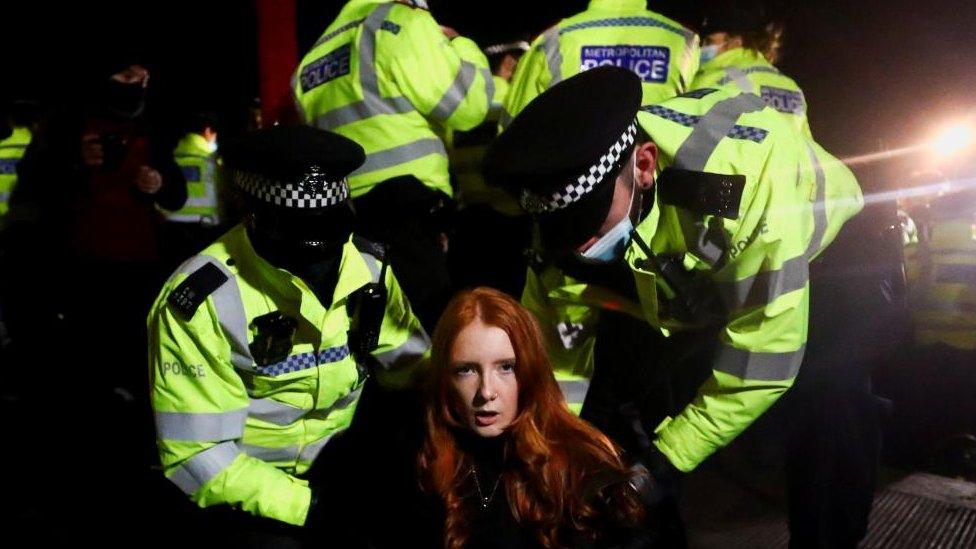
Patsy Stevenson being detained by two police officers
More than two years later, Ms Stevenson recalls still having nightmares. "I remember holding onto the hand rail really tightly cause I was scared that I was going to be pulled backwards and it was so cold and I couldn't even wrap my whole hand around it. I was just hanging on."
There were four women in a row, she says, they looked at each other and said "are you there until the end?".
"We sort of just all in solidarity just stayed there."
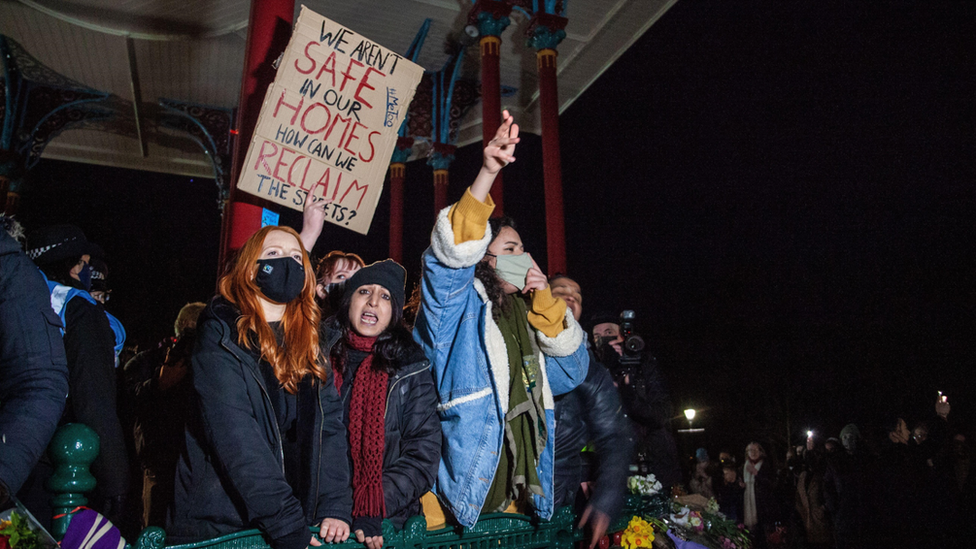
Patsy Stevenson and Dania Al-Obeid were pictured on the bandstand at Clapham Common
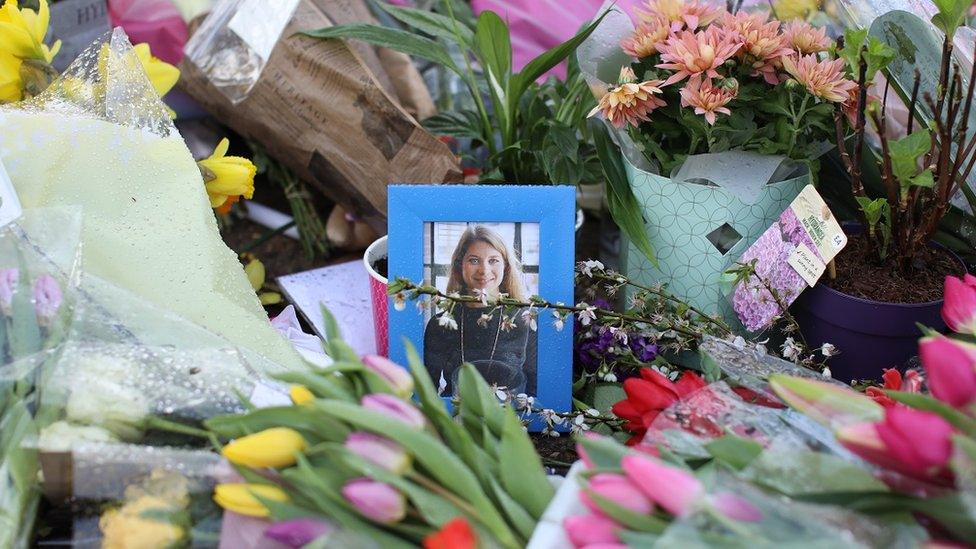
Sarah Everard had been walking to her home in nearby Brixton when she was kidnapped
Images of women being handcuffed on the ground and led away by officers sparked anger over Scotland Yard's policing.
The pre-planned socially distanced event had been cancelled after the Met said it would be illegal under lockdown restrictions, threatening organisers with £10,000 fines.
But people turned up throughout the day, including Catherine, Princess of Wales.
By the evening, the vigil saw clashes between police and some of those in attendance.
In letters to both Ms Stevenson and Ms Al-Obeid, Karen Findlay, commander for major events and public order policing for London, said she fully acknowledged "that your motivations in attending the vigil were to express your grief and anger" over Ms Everard's death.
Another reason for attending was to "express the level of concern and dissatisfaction felt by you and many other women who were understandably feeling badly let down by the Met", she said.
Ms Stevenson described the last few years as "really overwhelming" and said she has been "crying non-stop" since she learned of the settlement.
She told the BBC: "It's quite scary taking on the entire Met. I just am so happy that it's done, and the relief that we've felt is quite immense."
The 30-year-old from Southend-on-Sea, said she would have liked to see "a bit more" from the force, as she does not "believe there was any reason for me to be arrested".
"I don't think they've been fully accountable with this apology," she said.
"So I would have liked to see that. However, this for us is a huge, huge celebration. This is a big step in campaigning as well."
Watch: Patsy Stevenson gets emotional recalling the night of the vigil
Commander Findlay also acknowledged a "fundamental right to protest", but said the coronavirus pandemic "presented an extremely difficult challenge" for officers needing to balance the potential risk to public health.
"That aside, I appreciate the anger, frustration and alarm your arrest undoubtedly caused you, and I regret that your opportunity to express your grief and anger was curtailed by your arrest and removal."
She added she has overseen work to improve how officers respond to the policing of protests about women's issues, and said there is "extensive work" in the Met to address failings to adequately tackle violence against women and girls.
Law firm Bindmans, which is representing the two women involved in the legal action, has asked the Met to set out the details of this work.
Neither the Met nor Bindmans has disclosed the amount paid out to the two women.
Last year the organisers of the vigil brought separate legal action, with two High Court judges ruling in March that the Met breached their rights and its actions were "not in accordance with the law".
Later that year, the prosecution of six protesters accused by the Met of breaking lockdown rules was dropped by the Crown Prosecution Service.
Ms Al-Obeid was one of those six protesters.
Ms Al-Obeid, a survivor of abuse, told the BBC the period after her arrest was "terrifying [and] confusing", with her and others facing comments about why they attended and accusations they "hijacked" the event.
"I kind of went back into a hole. I just wanted to be as small as possible. It kind of reminded me of my experience of domestic abuse, where you're blamed."
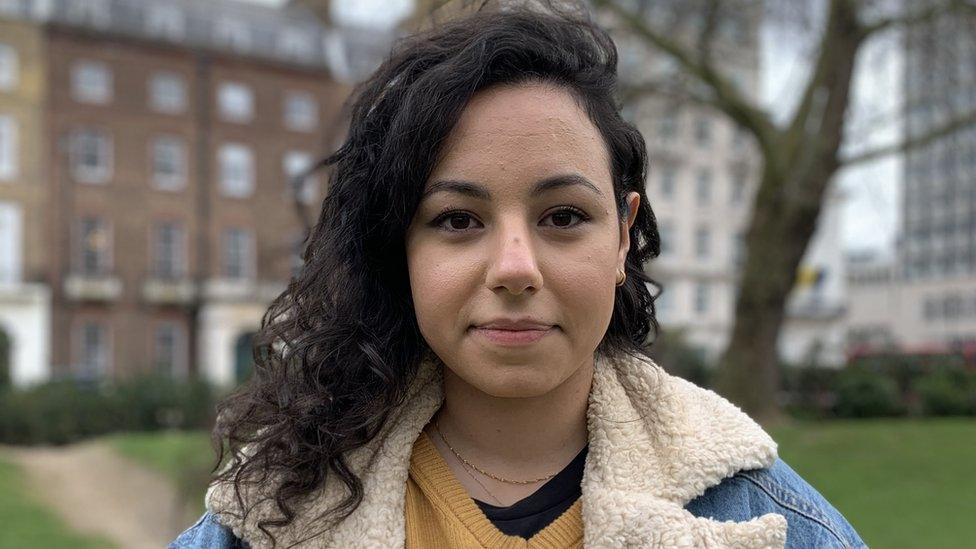
Dania Al-Obeid said "it feels like finally being heard and seen"
The 28-year-old from London added: "Coming to this moment where they've apologised, they've settled the claim, is so, so big... it feels like finally being heard and seen - like we deserve to be."
A Met Police spokesperson said the vigil took place in "extraordinary circumstances", adding: "The actions of individual officers were found by His Majesty's Inspectorate of Constabularies to have been appropriate.
"They acted in good faith, interpreting complex and changing legislation in very challenging circumstances in a way that was entirely consistent with their colleagues working across London at the time.
"A protracted legal dispute is not in the interests of any party, least of all the complainants who we recognise have already experienced significant distress as a result of this incident."
Related topics
- Published25 June 2021
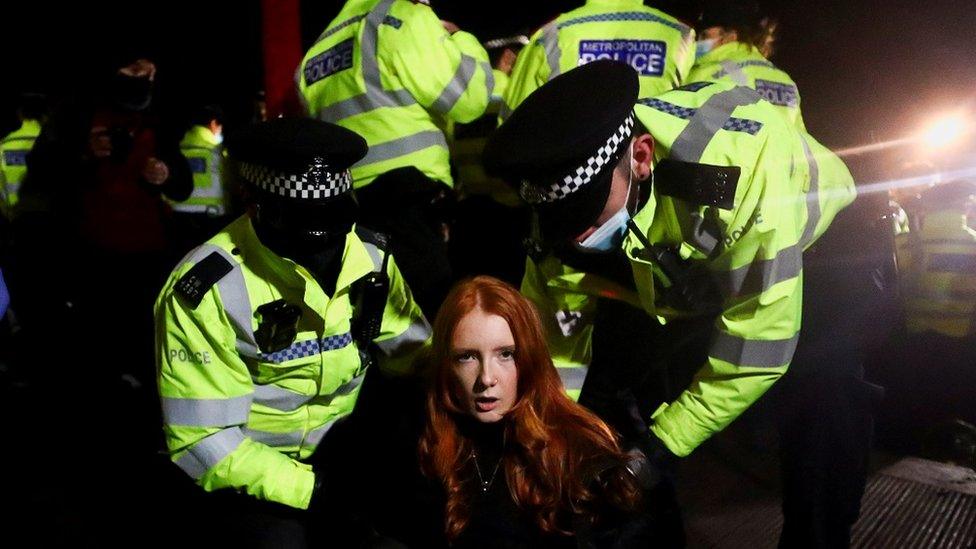
- Published14 August 2022
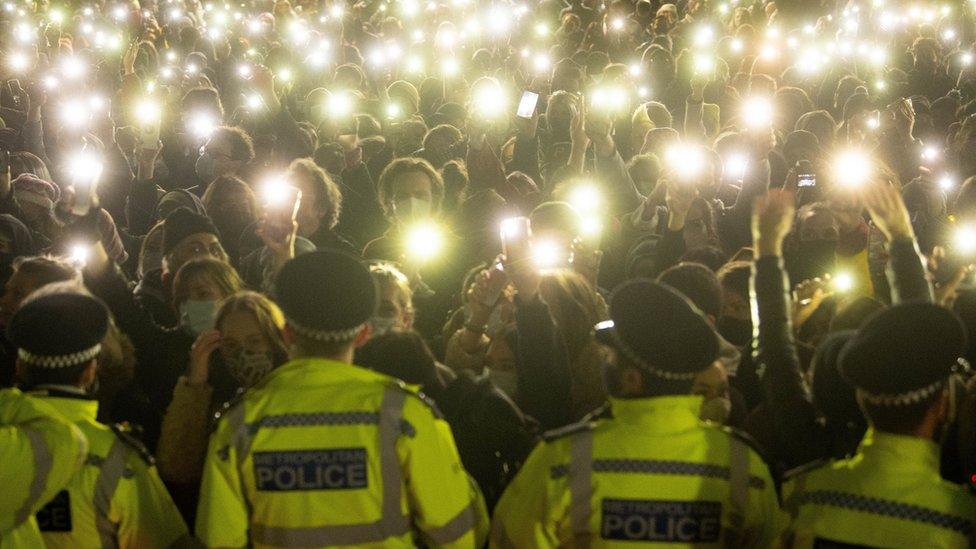
- Published14 March 2021